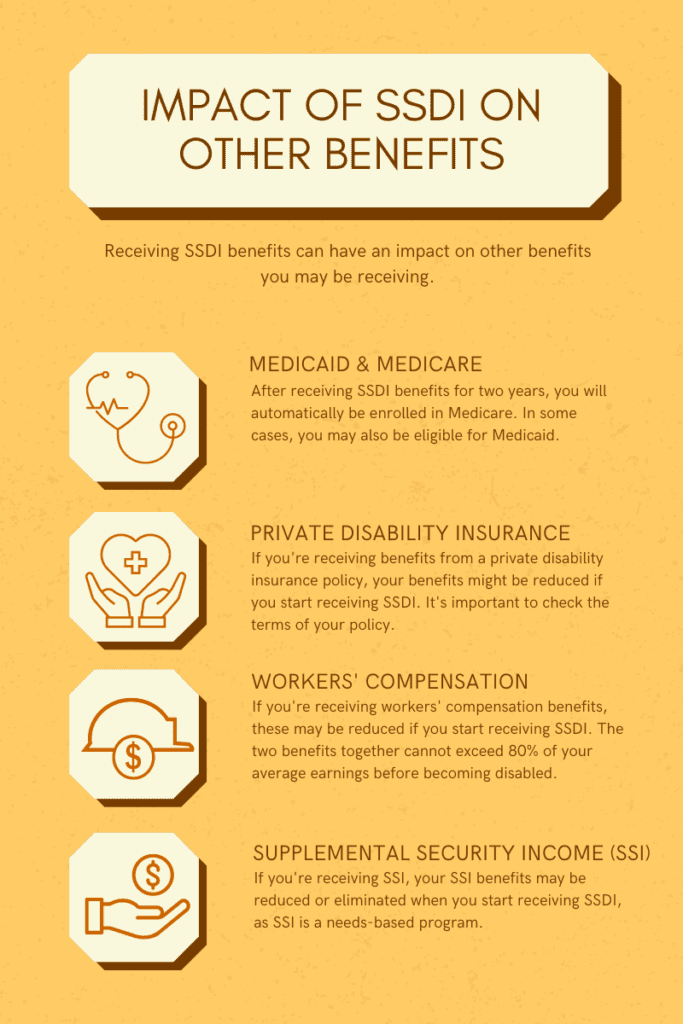
Navigating the complexities of Social Security Disability Insurance (SSDI) is a daunting task. The regulations, criteria, and procedures to understand are overwhelming. That’s where the expertise of the Rhode Island SSDI lawyers at Gemma Law comes into play. They will guide you through the process, ensuring you understand your rights and options and helping you secure the benefits you deserve.
Why Choose Gemma Law Associates?
With years of experience in handling SSDI cases, our lawyers have a deep understanding of SSDI regulations, and we’re committed to fighting for the rights of our clients.
At Gemma Law Associates, we pride ourselves on our track record. We’ve successfully helped numerous clients secure the SSDI benefits they were entitled to. Our lawyers have handled SSDI cases in Rhode Island that range from straightforward cases to cases that required extensive appeals and representation at hearings. In every case, we aim to ensure our clients receive the benefits they deserve.

Our commitment goes beyond just expertise and success. We believe in providing personalized service to each of our clients. We understand that each SSDI case is unique, with its own circumstances and challenges. That’s why we take the time to understand your situation, guide you through the process, and keep you informed every step of the way.
Choosing an SSDI lawyer is a significant decision. It’s about more than just their knowledge of the system; it’s about trust, communication, and commitment to your case. At Gemma Law Associates, we strive to embody these values in every case we handle. When you choose Gemma Law as your Rhode Island SSDI lawyer, you’re choosing an experienced team dedicated to fighting for your rights and securing the benefits you deserve.

For a free legal consultation with a Personal Injury lawyer serving Rhode IslandCall (401) 467-2300
Understanding SSDI
Social Security Disability Insurance (SSDI) is a federal program designed to provide financial assistance to individuals who are unable to work due to a disability. To qualify for SSDI, you must have a medical condition that meets the Social Security Administration’s definition of disability and have earned enough “work credits” through your employment history.
The definition of disability under SSDI is strict. It requires that you are unable to do the work that you did before, you cannot adjust to other work because of your medical condition(s), and your disability has lasted or is expected to last for at least one year or result in death. This definition is different from other programs, which may provide benefits for partial disability or short-term disability.
In Rhode Island, as in other states, applying for SSDI is complex and time-consuming. It involves gathering extensive medical evidence, filling out detailed forms, and potentially attending a disability hearing. This is where the experienced Rhode Island SSDI lawyers at Gemma Law become crucial. They can guide you through the process, helping you understand the requirements and ensuring your application accurately represents your situation.

Personal Injury Lawyer Near Me (401) 467-2300
The Role of Rhode Island SSDI Lawyers
Rhode Island SSDI lawyers are pivotal in the SSDI application and appeals process. The knowledge and experience our lawyers have can significantly increase the chances of a successful outcome.
One of the key roles of our SSDI lawyers is to help with the application process. This involves gathering all necessary medical evidence, helping you fill out the application forms accurately, and ensuring that your application demonstrates your eligibility for benefits. The lawyers at Gemma Law understand what the Social Security Administration is looking for and can help present your case most effectively.
If your initial application is denied, which is not uncommon, our SSDI lawyers can also assist with the appeals process. They will help you understand the reasons for the denial, gather additional evidence if necessary, and represent you at the disability hearing. Their expertise can be invaluable in presenting your case and challenging any negative decisions.
Finally, our SSDI lawyers will help ensure you receive the maximum benefits you’re entitled to. They will also help you understand the complex calculations involved in determining SSDI benefits and ensure that all relevant factors are considered.
In essence, Rhode Island SSDI lawyers are your advocates in the SSDI process. They are there to guide you, represent you, and fight for your rights. Whether you’re just starting the application process or facing an appeal, the expertise our Rhode Island SSDI lawyers possess will make a significant difference in your case.

Click to contact our personal injury lawyers today
The Rhode Island SSDI Application Process
The application process for Social Security Disability Insurance (SSDI) is complex and requires careful attention to detail. Here’s a step-by-step walkthrough of the process:
- Initial Application: The first step is to complete the initial application. This can be done online, by phone, or in person at a local Social Security office. The application requires detailed information about your medical condition, work history, and personal information.
- Medical Documentation: Along with your application, you’ll need to provide extensive medical documentation. This includes medical records, lab results, and doctor statements about your condition and how it affects your ability to work.
- Review by Disability Determination Services (DDS): Once your application is submitted, it will be reviewed by DDS. They will evaluate your medical evidence and may request additional information or examinations.
- Decision: After a thorough review, DDS will make a decision on your claim. If approved, you’ll start receiving benefits. If denied, you have the right to appeal.
Our Rhode Island SSDI lawyers will provide invaluable assistance at each step of this process. They can help ensure your application is complete and accurate, assist in gathering and presenting medical evidence, and guide you through any necessary appeals.

Common Challenges in Rhode Island SSDI Claims
Applying for SSDI benefits is a challenging process, and many applicants face hurdles along the way. Here are some common challenges:
- Insufficient Medical Evidence: One of the most common reasons for SSDI denials is insufficient medical evidence. It’s crucial to provide comprehensive medical records that clearly demonstrate your disability and its impact on your ability to work.
- Work History: To qualify for SSDI, you must have earned enough work credits. If you haven’t worked enough or recently enough, your claim may be denied.
- Non-compliance with Treatment: If you fail to follow prescribed treatment without a valid reason, your claim may be denied.
- Income: If you’re earning above the substantial gainful activity (SGA) limit, you may be deemed capable of working, leading to a denial.
- Disability Duration: To qualify for SSDI, your disability must be expected to last at least a year or result in death. If this is not clearly demonstrated, your claim may be denied.
The experienced Rhode Island SSDI lawyers at Gemma Law will help you navigate these challenges. They can ensure your application includes all necessary information, guide you in gathering and presenting medical evidence, and help you understand and meet all SSDI requirements.
Appealing a Denied SSDI Claim in Rhode Island
If your initial SSDI claim is denied, don’t lose hope. Many claims are denied at first but are later approved during the appeals process. Here’s a brief overview of the steps involved in an SSDI appeal:
- Reconsideration: The first step in the appeal process is to request a reconsideration. This is a complete review of your claim by someone who did not take part in the first decision. They will look at all the original evidence, as well as any new evidence you submit.
- Hearing by an Administrative Law Judge: If your claim is denied at the reconsideration stage, you can request a hearing by an Administrative Law Judge. At this hearing, you can present your case, bring witnesses, and provide additional evidence.
- Review by the Appeals Council: If you disagree with the hearing decision, you can ask for a review by Social Security’s Appeals Council. The Council looks at all requests for review, but it may deny a request if it believes the hearing decision was correct.
- Federal Court Review: If your claim is denied by the Appeals Council or the Council decides not to review your case, your last option is to file a lawsuit in a federal district court.
Our SSDI lawyers are invaluable allies during the appeals process. They will help you understand why your claim was denied, gather additional evidence, prepare for your hearing, and guide you through each step of the appeal.

Complete a Free Case Evaluation form now
Understanding SSDI Hearings in Rhode Island
An SSDI hearing is not like a typical court hearing. It’s usually held in a small conference room and is a private meeting between you, your lawyer, the judge, and any expert witnesses the judge has called. Here’s what you can expect:
- Questioning: The judge will ask about your medical condition, treatment, symptoms, daily activities, and work history. It’s important to answer all questions honestly and completely.
- Witness Testimony: The judge may call medical or vocational experts to testify. They can provide opinions about your medical condition and your ability to work. Your lawyer will have the opportunity to cross-examine these witnesses.
- Presentation of Evidence: Your lawyer can present evidence, such as medical records or doctor statements. They can also make arguments on your behalf about why you should be awarded benefits.
- Decision: After the hearing, the judge will make a decision based on all the evidence. You will receive a written decision in the mail.
Having an experienced Rhode Island SSDI lawyer represent you at your hearing will significantly increase your chances of success. They will help you prepare for the hearing, represent you during the hearing, and ensure that your case is presented in the best possible light.
The Impact of SSDI on Other Benefits
Receiving SSDI benefits can have an impact on other benefits you may be receiving. Here’s a brief overview of how SSDI can affect other common benefits:
- Medicaid and Medicare: After receiving SSDI benefits for two years, you will automatically be enrolled in Medicare. In some cases, you may also be eligible for Medicaid.
- Private Disability Insurance: If you’re receiving benefits from a private disability insurance policy, your benefits might be reduced if you start receiving SSDI. It’s important to check the terms of your policy.
- Workers’ Compensation: If you’re receiving workers’ compensation benefits, these may be reduced if you start receiving SSDI. The two benefits together cannot exceed 80% of your average earnings before becoming disabled.
- Supplemental Security Income (SSI): If you’re receiving SSI, your SSI benefits may be reduced or eliminated when you start receiving SSDI, as SSI is a needs-based program.
Understanding how SSDI can impact your other benefits is crucial to avoid surprises and ensure you’re maximizing your total benefits. An experienced Rhode Island SSDI lawyer can help you understand these interactions and plan accordingly.

SSDI vs SSI: Understanding the Difference
While both Social Security Disability Insurance (SSDI) and Supplemental Security Income (SSI) are programs designed to assist individuals who are disabled, they differ in several key ways.
SSDI is a program for people with a significant work history who have paid into the Social Security system through payroll taxes. The amount of SSDI benefits you can receive is based on your earnings record. To qualify for SSDI, you must have a medical condition that meets the Social Security Administration’s definition of disability and have earned enough “work credits.”
On the other hand, SSI is a needs-based program for people with limited income and resources, regardless of their work history. SSI is designed to help aged, blind, and disabled individuals with little or no income, providing cash to meet basic needs for food, clothing, and shelter.
Understanding the difference between these two programs is crucial as it can affect the benefits you might be eligible for and the application process. Our experienced Rhode Island SSDI lawyers will help you understand these differences and guide you through applying for the right program.
If you or a loved one is considering applying for SSDI in Rhode Island or has had an SSDI claim denied in Rhode Island, don’t hesitate to reach out to us. Our experienced team of Rhode Island SSDI lawyers is always ready to help. Contact Gemma Law Associates for your FREE consultation.
Frequently Asked Questions (FAQ’s)
Do You Need a Good RI Social Security Disability Lawyer?
Yes, having a good Rhode Island SSDI lawyer, like those at Gemma Law Associates, can significantly increase your chances of a successful claim. They can guide you through the complex process, help with the application, and represent you in any appeals.
What Is Social Security Disability (SSDI)?
SSDI is a federal insurance program that provides benefits to people who are unable to work due to a disability. Eligibility is based on a person’s work history and the severity of their disability.
What Is Supplemental Security Income (SSI)?
SSI is a federal program that provides financial aid to elderly, blind, or disabled individuals with little or no income. It’s designed to help cover basic needs like food, clothing, and shelter.
How Do You Qualify for Social Security Disability Benefits?
To qualify for SSDI benefits, you must have a medical condition that meets the Social Security Administration’s definition of disability and have earned enough work credits through your employment history.
How Do You Apply for Social Security Disability Benefits?
You can apply for SSDI benefits online, by phone, or in person at a local Social Security office. The application requires detailed information about your medical condition, work history, and personal information.
What Is the Legal Fee?
Legal fees for SSDI cases are regulated by federal law. They are typically a percentage of the back pay awarded to the client, up to a maximum limit set by the Social Security Administration.
How Do You Prepare For Your SSDI Hearing?
Preparation for an SSDI hearing involves gathering all necessary medical evidence, understanding the questions that will be asked, and knowing how to present your case effectively. An experienced SSDI lawyer can help you prepare.
How Can a Lawyer Help You Win Your SSD Claim?
An SSDI lawyer can help you understand the process, assist in gathering and presenting medical evidence, guide you through the application and appeals process, and represent you at necessary hearings. Their expertise can significantly increase your chances of a successful claim.
What Are Children’s Benefits?
Children’s benefits are part of the Social Security program that provides financial assistance to the dependent children of individuals who are receiving Social Security Disability Insurance (SSDI) or have retired or passed away. These benefits aim to help offset the costs of raising children when a parent cannot work due to a disability.
What Are Survivor’s Benefits?
Survivor’s benefits are payments made by the Social Security Administration to the family members of a deceased worker who had earned enough Social Security credits during their working life. These benefits can provide crucial financial support to a deceased worker’s spouse, children, or other dependents.
How Long Does It Take to Get a Decision?
The timeline for receiving a decision on an SSDI claim can vary widely, but typically it takes between 3 to 5 months. This timeline can be influenced by several factors, including the nature and severity of your disability, how quickly the Social Security Administration can obtain medical evidence, and whether a medical exam or further investigation is necessary.
What Is the Key to Winning SSDI Claims?
The key to winning SSDI claims is providing comprehensive and convincing medical evidence that clearly demonstrates your disability and its impact on your ability to work. This, coupled with a well-prepared and complete application or appeal, can significantly increase your chances of a successful claim.
What Happens During an SSDI Hearing?
During an SSDI hearing, you will have the opportunity to present your case to an Administrative Law Judge. This typically involves providing updated medical evidence, answering questions about your disability and its impact on your ability to work, and possibly questioning medical or vocational experts. It’s a crucial step in the appeal process if your initial application is denied.
What Are Common SSDI Myths?
Common SSDI myths include the belief that SSDI is impossible to get, that you can’t work while receiving benefits, or that all initial applications are denied. It’s important to consult an experienced SSDI lawyer to separate fact from fiction and navigate the SSDI process effectively.
Can You Get Both SSDI and SSI?
Yes, it’s possible to receive both SSDI and SSI benefits, known as concurrent benefits, if you meet the eligibility requirements for both programs. This typically happens when a person has a severe disability, but their SSDI benefits are low due to a limited work history.
What Are Long-Term Disability (LTD) Insurance Benefits?
Long Term Disability (LTD) insurance benefits are provided by private insurance policies and offer income replacement if you cannot work due to a long-term disability. These benefits differ from SSDI as they are based on an insurance contract rather than work history and Social Security taxes.
SSDI or SSI – Which Program Is the Best Match for You?
The best program for you, SSDI or SSI, depends on your individual circumstances. SSDI is best if you have a significant work history, while SSI is designed for low-income individuals who haven’t earned enough work credits for SSDI.
Who May Qualify for SSDI? What Are the Criteria for Disability?
To qualify for SSDI, you must have a medical condition that meets the Social Security Administration’s definition of disability and have earned enough work credits. The disability must prevent you from working and be expected to last at least one year or result in death.
What if I Missed a Deadline?
If you miss a deadline in the SSDI process, it could lead to a delay or denial of your claim. However, there may be options for appeal or request for reconsideration. It’s crucial to consult with an SSDI lawyer to understand your options.
Which Mental Disorders Qualify for Social Security Disability?
Several mental disorders can qualify for Social Security Disability, including but not limited to schizophrenia, bipolar disorder, major depressive disorder, anxiety disorders, and intellectual disability. Each disorder must meet specific criteria outlined by the Social Security Administration to be considered for disability benefits.
What if I Haven’t Worked in the Last Couple of Years?
If you haven’t worked in the last couple of years, it may affect your eligibility for Social Security Disability Insurance (SSDI). SSDI requires a sufficient work history and work credits. However, you may still be eligible for Supplemental Security Income (SSI) based on your financial need and disability status.
What Is My “Established Onset Date?”
Your “established onset date” refers to when the Social Security Administration determines that your disability began. It is an important factor in calculating your retroactive benefits. The established onset date is determined based on medical evidence and the information provided in your application.
How Far Back Will Social Security Pay if Approved?
If approved for Social Security Disability benefits, the Social Security Administration can provide retroactive payments for a certain period. Generally, SSDI benefits can be paid up to 12 months before the date of your application. However, the payment start date depends on various factors, including your established onset date.
How Long Does a Social Security Claim Take?
The duration of a Social Security claim can vary depending on several factors, including the complexity of the case and the level of the appeal. It can range from a few months to over a year. Timelines can be influenced by factors such as the need for additional medical evidence, scheduling of hearings, and administrative processing times.
How Much Will I Get if I’m Approved for SSI or SSDI?
The amount you receive if approved for SSI or SSDI depends on various factors, including your work history, earnings, and living arrangements. SSDI benefits are based on your average lifetime earnings, while SSI benefits have a standard federal payment rate that can be adjusted based on income and resources.
How Much Will It Cost to Hire an SSDI Attorney?
SSDI attorneys typically work on a contingency fee basis. This means they only receive payment if they win your case, and their fee is typically a percentage of the backpay you are awarded. Federal law regulates attorney fees in SSDI cases to ensure they are fair and reasonable.
Serving the Greater Providence metro area, including Warwick, Cranston, Pawtucket, North Providence, South Kingston, Coventry, Cumberland, Woonsocket, and East Providence.

Call or text (401) 467-2300 or complete a Free Case Evaluation form

